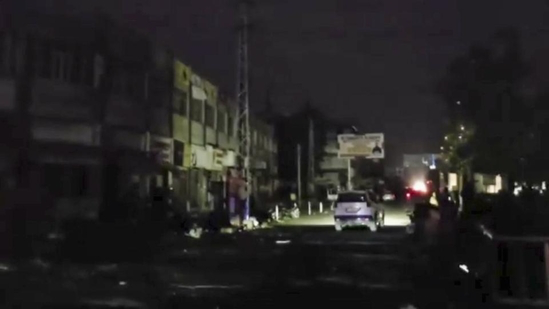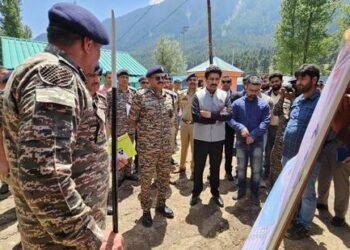A bomb-like object was discovered on Friday morning in the Kishanghat area of Jaisalmer, Rajasthan, just hours after a series of drone and missile attacks were launched by Pakistan along India’s western border. The object, suspected to be part of a drone, has sparked serious security concerns amid ongoing military escalation between the two nations.
The incident came to light after a local resident, Arjun Nath, spotted a suspicious device near a nursery in Jogis’ Colony, situated in front of Kishanghat under the Kotwali police station limits. Nath quickly informed Kalyan Ram, the representative of the local Sarpanch, who alerted police and district authorities.
Upon receiving the information, the Indian Air Force responded swiftly, cordoned off the area, and called in Army explosives experts to inspect and neutralize the device. Preliminary police statements indicate that the object resembles debris from a drone, reportedly launched from across the border late Thursday night around 10:30 pm. However, confirmation about whether it is a live explosive or already defused remains pending. “It is currently not known if it is live or destroyed,” said Kotwali SHO Prem Daan.
This discovery came shortly after Pakistan attempted a widespread aerial strike, targeting Indian military facilities across Jammu, Pathankot, Udhampur, and 15 other cities, including strategic areas in Jammu and Kashmir, Punjab, Rajasthan, and Gujarat. These attacks came in retaliation for India’s precision missile strikes on nine terror camps in Pakistan and Pakistan-occupied Kashmir under “Operation Sindoor,” conducted in response to the April 22 Pahalgam terror attack.
Amid rising tensions, Rajasthan Chief Minister Bhajanlal Sharma convened a high-level emergency meeting to assess the situation and strengthen security protocols along the border. The state government has cancelled all leaves for officials deployed in border districts and has filled administrative gaps by appointing officers to vacant posts.
With tensions running high and drone warfare entering the escalation phase, this incident underlines the urgent need for enhanced border surveillance and prompt civilian-military coordination to avert potential threats.








 India
India











